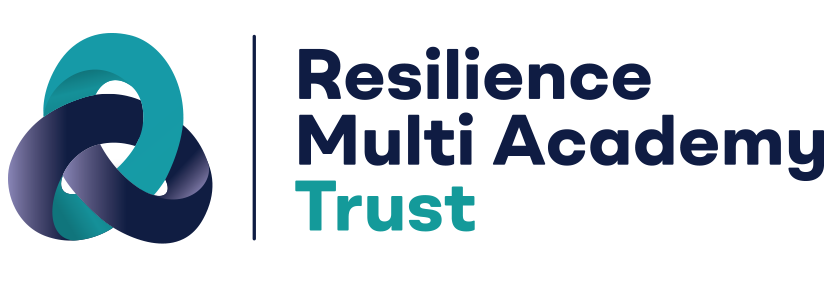KS5 Maths
Maths is one of the most sought-after subjects by employers and universities, thanks to its emphasis on logical reasoning, numerical analysis, and problem-solving.
Our curriculum is structured around key strands—algebra, calculus, statistics, and mechanics. Learning is sequenced to develop fluency, accuracy, and mathematical resilience.
These skills are essential in fields like finance, engineering, data science, and computing, where precision and critical thinking are vital.
There are three courses on offer at UTC Leeds:
- Core Maths
- A-Level Maths
- A-level Further Maths
Find out more below!
Key Skills Developed:
-
Advanced numeracy and data handling
-
Problem-solving and abstract reasoning
-
Modelling and logical analysis
-
Structured, accurate communication of ideas
Career Opportunities:
-
Finance, Banking, and Accountancy
-
Data Analysis and Statistics
-
Engineering and Physical Sciences
-
Computer Science and AI
-
Economics and Business Strategy
Core Maths
Exam board: AQA
Course Title: Level 3 Certificate in Mathematical Studies
The course is aimed at students who have achieved a grade 4 or above in GCSE. It incorporates real-life situations like calculating tax and National Insurance along with modelling situations using maths. Graphs, charts, statistics, percentages and other higher GCSE topics are used throughout. There are two exams which include the following topics. The exams are taken in May and June of Year 12.
Examination 1:
Analysis of data
- Collecting and sampling data
- Representing data numerically
- Representing data diagrammatically
Maths for Personal Finance
- Numerical calculations
- Percentages
- Interest rates
- Repayments and the cost of credit
- Graphical representation
- Taxation
- Solution to financial problems
Estimation
- The modelling cycle
- Fermi estimation
Critical analysis of given data and models (including spreadsheets and tabular data)
- Presenting logical and reasoned arguments in context
- Communicating mathematical approaches and solutions
- Analysing critically
Examination 2:
- Graphical methods
- Graphs of functions
- Intersection points
Rates of change
- Gradient
- Average speed
- Speed and acceleration
Exponential functions
- The function ax
- The number e
- Exponential growth and decay
Useful Links
www.aqa.org.uk/subjects/mathematics/aqa-certificate/mathematical-studies-1350
A-Level Mathematics
Mathematics builds advanced numerical, analytical, and logical reasoning skills. It’s highly respected by employers and universities across nearly every industry due to its rigour and wide applicability.
Students will need to have achieved a minimum of a grade 6 at GCSE to start the A-level course.
Exam board: Edexcel
Course Title: A-Level Mathematics
The course is taught over two years, with an option available to take an AS exam in May of Year 12.
Topics covered within the Pure element of the course include:
- Algebraic Expressions & Methods
- Co-ordinate Geometry
- Functions, Graphs & Transformations
- Sequences & Series
- Binomial Expansion
- Radians
- Trigonometric Ratios, Identities, Functions & Modelling
- Exponentials & Logarithms
- Parametric Equations
- Differentiation & Integration
- Numerical Methods
- Vectors
The third exam is Statistics and Mechanics based and includes questions from:
Section A: Statistics
- Topic 1 – Statistical sampling
- Topic 2 – Data presentation and interpretation
- Topic 3 – Probability
- Topic 4 – Statistical distributions
- Topic 5 – Statistical hypothesis testing
Section B: Mechanics
- Topic 6 – Quantities and units in mechanics
- Topic 7 – Kinematics
- Topic 8 – Forces and Newton’s laws
- Topic 9 – Moments
Useful Links
- https://qualifications.pearson.com/en/qualifications/edexcel-a-levels/mathematics-2017.html
- https://www.drfrostmaths.com/
- https://www.physicsandmathstutor.com/
A-Level Further Maths
Further Mathematics is designed for students who want to deepen their mathematical understanding and explore complex concepts. It develops exceptional problem-solving and logical thinking skills essential for high-level technical and analytical roles.
Exam board: Edexcel
Course Title: A-Level Further Mathematics
The aims and objectives of this qualification are to enable students to:
- understand mathematics and mathematical processes in ways that promote confidence, foster enjoyment and provide a strong foundation for progress to further study
- extend their range of mathematical skills and techniques
- understand coherence and progression in mathematics and how different areas of mathematics are connected
- apply mathematics in other fields of study and be aware of the relevance of mathematics to the world of work and to situations in society in general
- use their mathematical knowledge to make logical and reasoned decisions in solving problems both within pure mathematics and in a variety of contexts, and communicate the mathematical rationale for these decisions clearly
Students are taught the AS Further Maths alongside their study of the A Level Maths during Year 12.
There are two compulsory exams, Core Pure 1 and Core Pure 2.
Two further exams are chosen, depending upon the strengths of the group.
The compulsory modules include the following topics:
Proof, Complex numbers, Matrices, Further algebra and functions, Further calculus, Further vectors, Polar coordinates, Hyperbolic functions, Differential equations
Useful Links
- https://qualifications.pearson.com/en/qualifications/edexcel-a-levels/mathematics-2017.html#tab-AlevelFurtherMathematics
- https://www.drfrostmaths.com/
- https://www.physicsandmathstutor.com/


